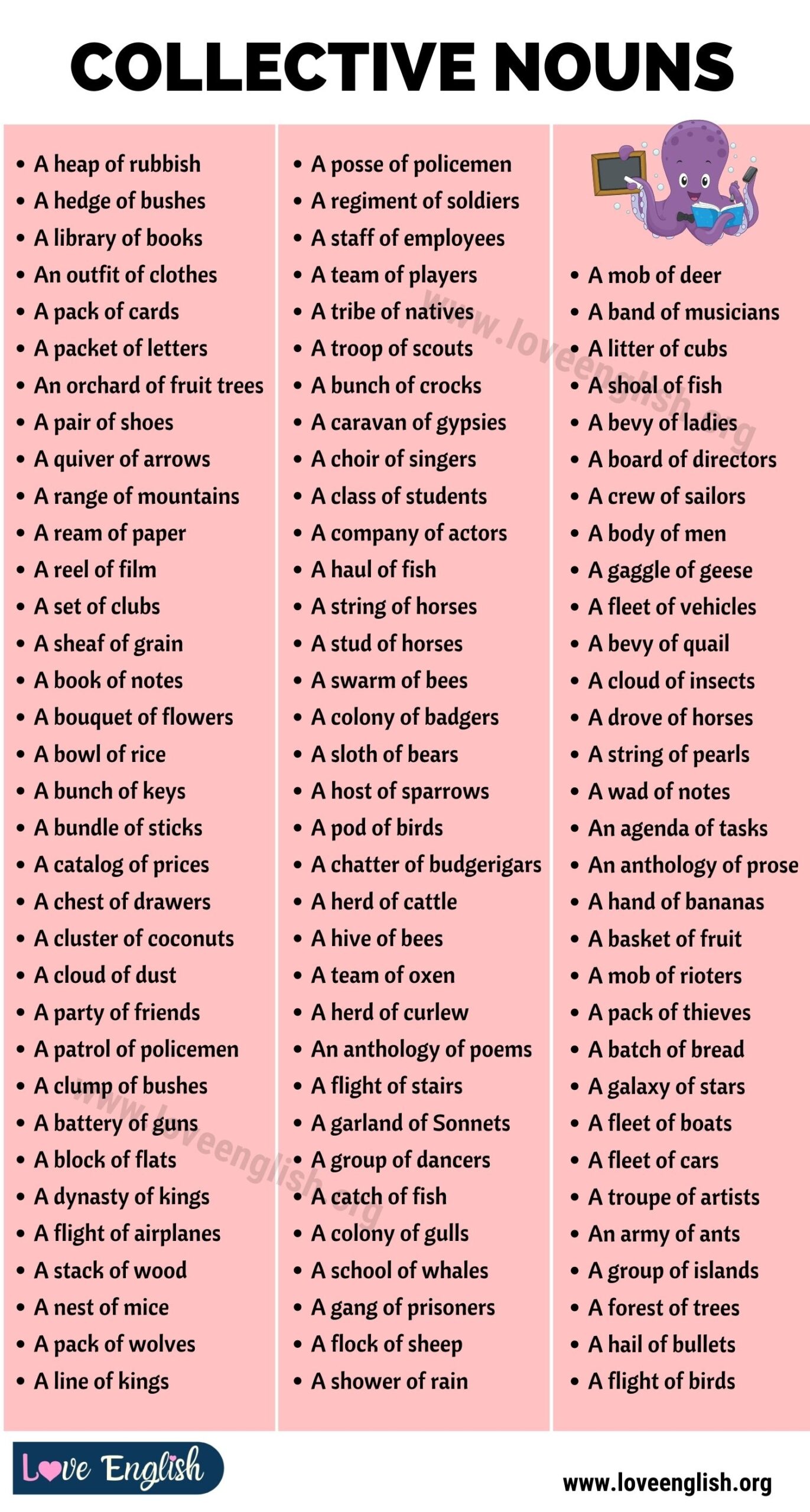Collective nouns are a fascinating part of the English language, used to describe groups of animals in a unique and creative way. From a murder of crows to a parliament of owls, these terms add a touch of whimsy and poetry to our descriptions of the animal kingdom.
In this article, we will explore 100 collective nouns for animals, showcasing the rich tapestry of language that surrounds the creatures we share our world with.
List of 100 Collective Nouns for Animals
1. A pride of lions
2. A herd of elephants
3. A gaggle of geese
4. A pack of wolves
5. A swarm of bees
These collective nouns not only serve a practical purpose in communication but also reflect the cultural significance and mythology surrounding certain animals. For example, a murder of crows may evoke images of darkness and mystery, while a dazzle of zebras conjures up visions of striped beauty in the African savannah.
Furthermore, collective nouns can vary depending on the context and region. For instance, a group of fish may be referred to as a school when swimming together, but a shoal when gathered near the surface. These subtle nuances add depth and complexity to our understanding of the animal world.
As language continues to evolve, so too do the collective nouns we use to describe animals. New terms are constantly being invented and adopted, reflecting changing attitudes and perspectives towards the natural world. In this way, collective nouns serve as a bridge between human culture and the diverse creatures that inhabit our planet.
In conclusion, the rich array of collective nouns for animals highlights the beauty and complexity of language. From a bloat of hippos to a crash of rhinos, these terms not only capture the essence of the animal kingdom but also spark our imagination and creativity. So next time you encounter a group of animals, take a moment to appreciate the linguistic wonders that enrich our interactions with the natural world.
